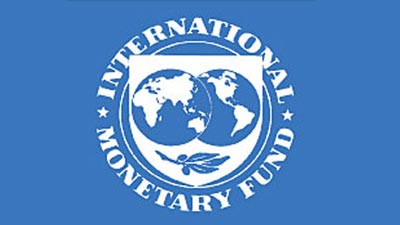The International Monetary Fund (IMF) has set March ending as the date for its Executive Board to carry out its final review of Ghana’s programme before approving of its exit.
A pass would lead to the successful conclusion of the program on April 3 2019. This was after the Fund’s staff mission to Ghana completed discussions with government which could be described as the final staff review on Ghana Extended Credit Facility Program.
What next after the Executive Board Meeting on Ghana
If Ghana passes the combined 7th and 8th Extended Credit Facility by the end of March, this would lead to the release of the final tranche of Fund cash of about $188 million, bringing total disbursements under the program to about SDR 664.20 million ($920.58 million).
Read also: We need approval to complete the final IMF exit processes-MP
Status of Extended Credit Facility for Ghana
According to the IMF staff mission led by Annalisa Fedelino, government has made “good progress implementing the Extended Credit Facility -supported program, which will end on April 3, 2019, as envisagedâ€.
The IMF noted that six out of nine end-December 2018 quantitative targets under the program were met and structural reforms are advancing.
Details of IMF staff visit to Ghana
The IMF staff mission at the end of their visit to Ghana noted that domestic revenue mobilization should remain a key priority to create fiscal space and reduce public debt. The mission added, “the authorities should continue efforts at implementing tax policy measures, especially tax exemptions and tax compliance measuresâ€.
On Monetary Policy, they were of the view that Bank of Ghana should continue to remain prudent and complement fiscal adjustment efforts to keep inflation expectations anchored.
Ghana’s economy
The Fund described the economic performance over the period as favourable despite a less supportive external environment for frontier economies. Real GDP grew by 6.7 per cent in the first three quarters of 2018. Over the medium term, growth is projected to remain sustained, buttressed by recent oil discoveries.
Despite this good verdict on the economy, the staff were of the view that the economy experienced some pressures in the second half of 2018, largely emanating from foreign investors rebalancing their portfolios in the context of a stronger dollar, rising US interest rates, and volatility in emerging markets, which led to a decline in external buffers.
Persons engaged during Mission Visit
The Mission visited Accra from February 12–21, to conduct discussions for the combined 7th and 8th reviews and they met with Vice President Mahamudu Bawumia; Finance Minister, Ken Ofori-Atta; Bank of Ghana Governor, Ernest Addison, other senior officials, as well as representatives of the private sector, civil society, and development partners.
Government fiscal commitment post program
According to the staff, it has reached some understanding with government on economic policies aimed at safeguarding macroeconomic stability, improving monitoring of fiscal risks, strengthening external buffers.
The staff was of the view that the authorities have shown great commitment to financial stability with the resolution of nine banks during the last two years which will help improve medium-term prospects for economic growth.
The overall financial system is adequately capitalized and well-positioned to support credit growth and investment going forward. The Bank of Ghana is introducing reform measures to address remaining financial sector weaknesses.
www.primenewsghana.com/Â Ghana News
Credit: myjoyonline





